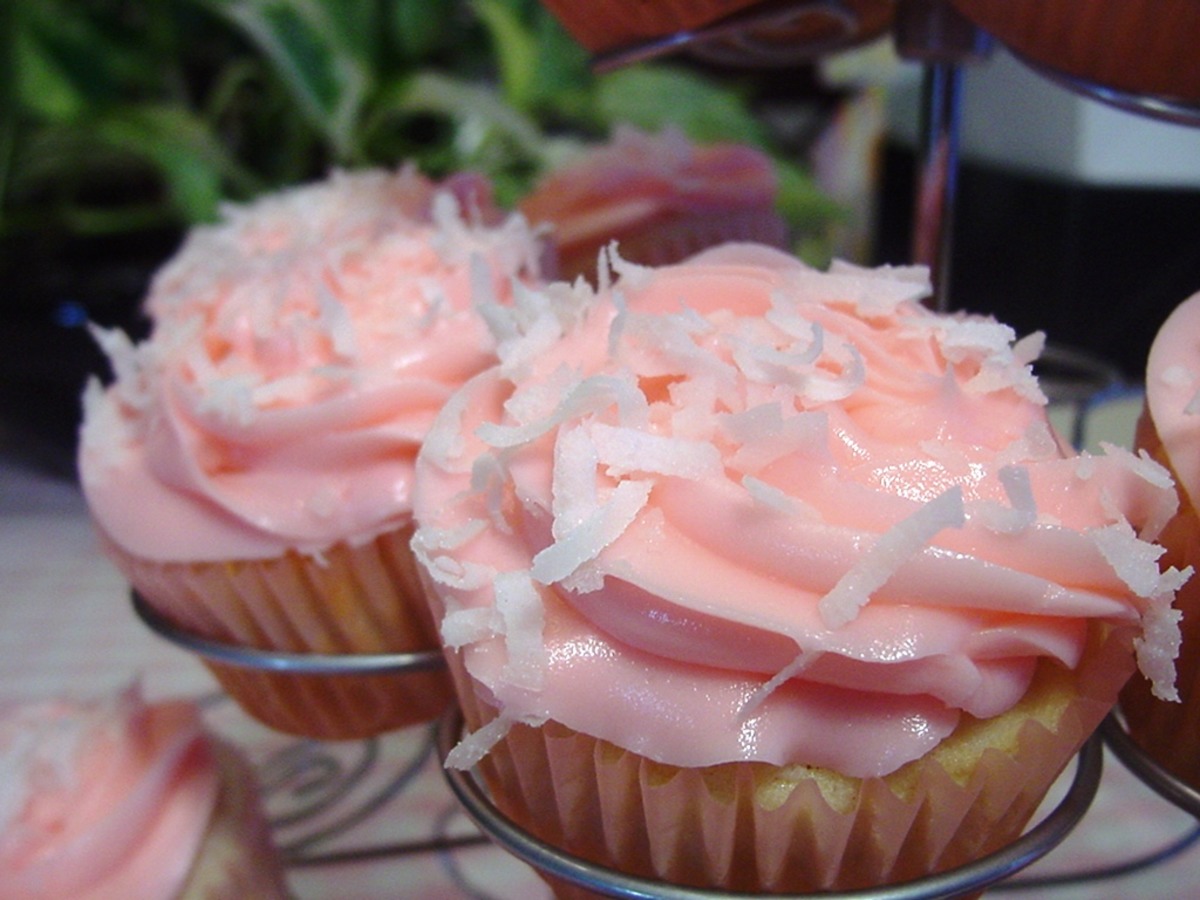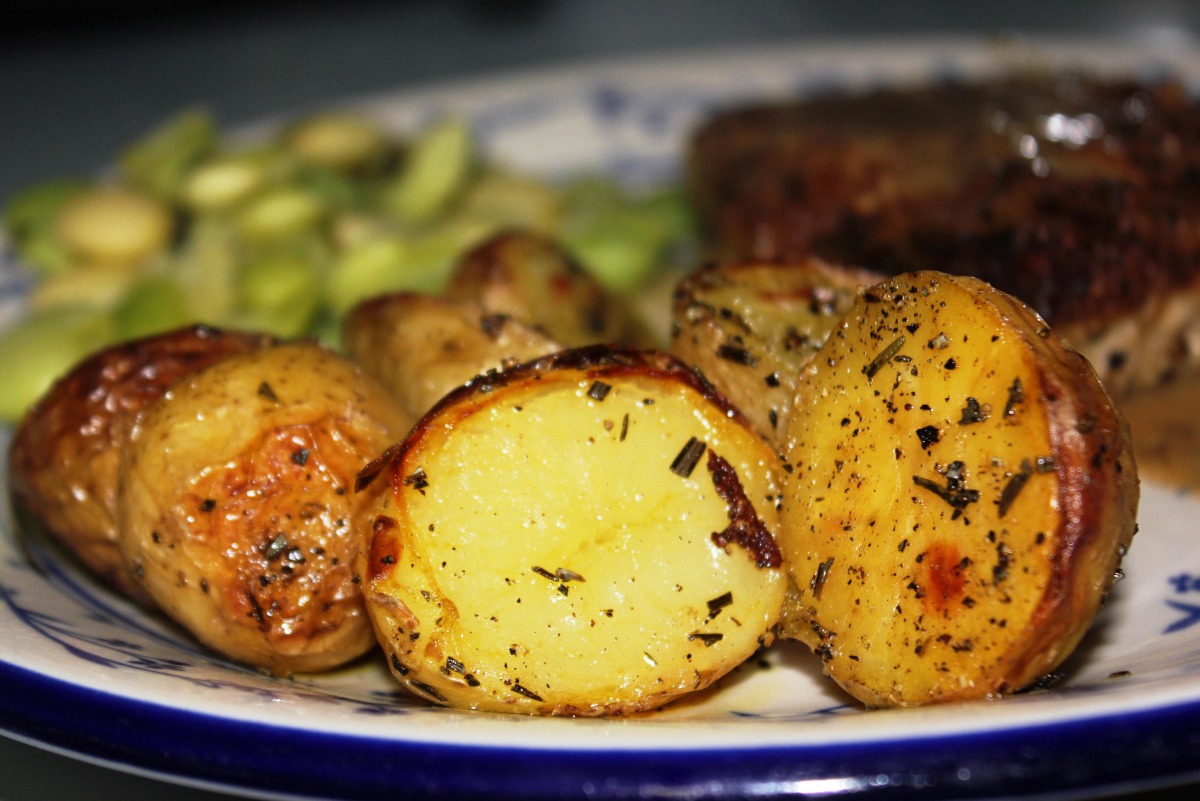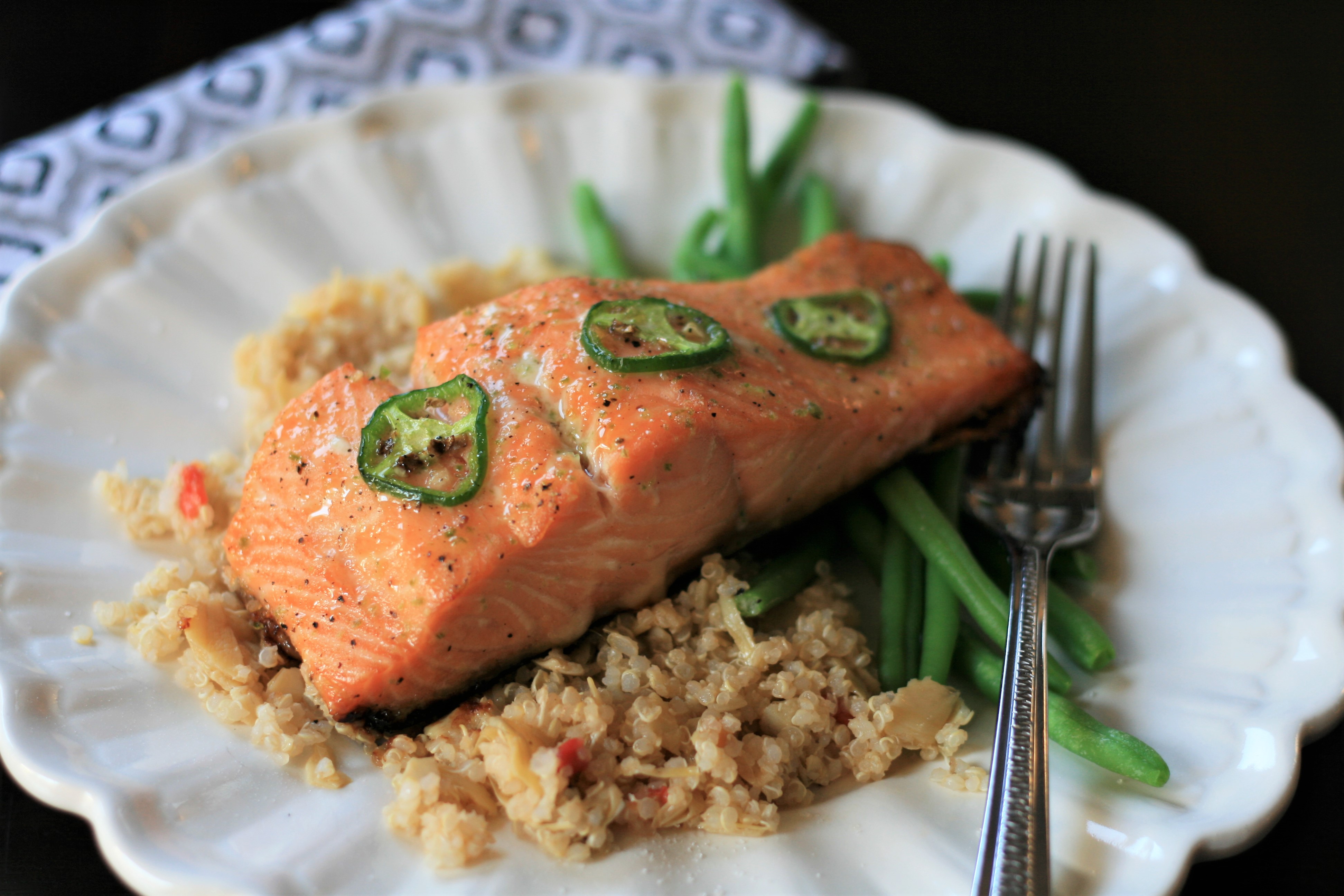A perfect project for the holidays, a gingerbread house can be easier than you think. Julia Moskin will show you how.
Provided by Julia Moskin
Steps:
- Once the gingerbread slabs have hardened (a few days after baking), it's time to cut them into walls. We've created a printable template, but if you don't have a printer, we'll walk you through the process. We have options for cutting out a door and a window, but if you'd rather not bother, you can draw them on with icing instead.)Once you've prepared the recipe, you should have five 10-by-10-inch slabs of gingerbread. These will then be cut into neat 9-inch squares to serve as the walls and roof of your house. You can do this with a ruler, a 9-inch square of parchment or cardboard, or using our template. Lay the template onto the slabs, or measure out and mark a 9-inch square onto them. Using a bread knife or another large, sharp knife, trim off the edges of all five slabs. Save the trimmings: They can be used later for decorating. To cut the front and back walls, reserve the smoothest, most unblemished gingerbread square for the front of your house. Using the template as a guide, cut two of the corners to make the top into a peaked shape. Take a second gingerbread square, and, again using the template, cut it to match. Set this piece aside. It will serve as your back wall. For the side walls, use the template to cut one 9-inch square in half. For the roof, set aside the last two 9-inch squares. If you're not using the template, take your ruler, and find the precise center of the top edge of your front wall, about 4½ inches from either side. Mark it with the tip of a knife. Place one end of the ruler on the mark, and angle the other end down to measure a line to the right edge of the wall. When the line is 6½ inches long from point to point, you have the correct angle. Mark the line with the tip of a small knife. Repeat on the other side, drawing the same line from the top-center mark to the left edge of the wall. Then, use your large knife to cut through the lines, slicing off the top corners. To cut the back wall, place the trimmed front wall on top of it and cut to match, following the lines of the front wall. For the side walls, cut one 9-inch square in half, to make two rectangles, each one 9 inches tall and 4½ inches wide. For the roof, set aside the final two squares. You'll use the whole pieces. For the optional doorway, lay the front wall piece on a work surface and, using a ruler and the tip of a small knife, trace a doorway in the center of the bottom edge. It should be about 1½ inches wide by 2½ inches tall, wide enough so you can slide a tealight into the house. Cut it out, and set the door aside.You don't have to make a stained-glass window for your gingerbread house, but it's an easy way to make the project truly special. 1. To start, heat the oven to 350 degrees. On the front wall, cut out the window as indicated in the template, using a 2-inch round cutter. Lift out the gingerbread circle, and discard - or eat! (Our template shows just one window on the front wall, but feel free to put one on the back wall, or to use a different shape of cookie cutter, like a star or a diamond.) 2. For each window, unwrap three hard candies. Red, yellow or green work best, but you'll most likely want to stick to a single color. Using a large knife, cut them into three pieces. Place the blade on top of each candy and lean your weight onto it from above; it will snap into pieces. 3. Place the wall on a baking sheet lined with parchment paper or a silicone baking mat. Put the candy pieces in the circle in a single layer (you may have some left over). 4. To bake, lay a sheet of parchment paper or a baking mat on top of the gingerbread slab, then another sheet pan on top of that. The weight of the top pan will prevent the melted candy from oozing out onto the bottom pan. Slide it all into the oven, and bake for 15 minutes.5. Remove from the oven, place on a rack and let cool at least 10 minutes. Lift the weighted sheet pan, and let the wall cool completely, until the candy is hardened. To remove, lift the wall, gently peeling the liner from the candy. 6. Once it is cool, you can pipe a thin horizontal, and then a vertical, line of icing across the window, dividing it into a grid, or simply leave it alone.
- The key to a great gingerbread house, royal icing is just a mix of confectioners' sugar, egg whites and lemon juice. It's a crisp, bright white that makes beautiful snowflakes, snow-covered roof tiles and icicles. It's the only icing you need for this project: Our recipe yields three cups, enough for constructing the house, but you'll want to make a second, thinner batch for decoration.With the slabs cut, it's time to start piping on decorations. It's much easier to pipe onto a flat surface, so for the neatest result, you'll want to decorate the walls before assembling the house. First, sketch out a plan for decorating the front and back walls, so they are (somewhat) symmetrical. And prepare your royal icing for construction. In a mixer fitted with a paddle attachment, make the icing you'll use to assemble the house by combining 1 pound of confectioners' sugar, 2 egg whites and 1 teaspoon lemon juice. For a softer icing, good for piped decorations, change the proportions slightly: 2 pounds confectioners' sugar, 5 egg whites, and 2 teaspoons lemon juice. If you need an even softer version for flooding, add lemon juice until the icing is runny, like thick glue. Keep any icing covered with plastic wrap pressed against the surface to prevent drying. Now, gather your materials. Mr. Yosses recommends thick, sealable one-gallon plastic bags for piping instead of traditional pastry bags. As long as it isn't overfilled, the plastic bag works perfectly, and, for this project, you won't need any special tips. Working with about 1 cup of icing at a time, scoop it into the bag and seal. Push the icing down toward one of the bottom corners. For the cleanest result, use a bench scraper or the back of a knife blade to push all the icing into one corner. Twist the bag tightly shut just above the icing. If you're going to pipe for construction, snip a hole about ⅜-inch wide off the corner. For decorating, snip a hole ⅛-inch wide. Rest the icing-filled bag in your right palm (or left, if you're a lefty), and tightly grip the twisted part of the bag in the crook between your thumb and forefinger. Squeeze your fingers and palm together, pressing lightly to pipe the icing down and out. If you need greater control, use your nondominant hand to guide and stabilize the tip while the dominant hand does the piping. Practice on a sheet of parchment paper, and, once you feel confident, think of piping as a bit like drawing. On your gingerbread house, you can make outlines of doors, windows, shutters, roof tiles and other architectural elements to make your house look more realistic. You can also pipe on decorations like dots, and curlicues. A snowflake can be as simple as three crossed lines, with a dot on each tip. Curlicues, scallops and garlands are traditional, and can be reminiscent of the gingerbread trim on Victorian houses. To cover a large surface with snow, thin the royal icing with lemon juice until it's quite runny, then spoon or pipe it over the surface, working from the outside in. This is called flooding, because the icing flows and fills the space on its own. The royal icing for construction dries to be very hard over time. It will set strongly enough to hold a wall in 10 to 15 minutes, so keep that in mind as you work. Thinned icing will not dry quite so hard, but that's usually not a problem because it's used only for decorating, not for building the structure.
- After baking, cutting and piping comes the trickiest stage, assembling the house. Many a gingerbread-house builder has watched in frustration as one side falls while another is being put up. But with the aid of some savvily placed props and some sturdy royal icing, you can quickly move on to the last - and best - part: adding the finishing touches. To assemble the house, you'll first raise the front wall, then the side walls, and finally, slide the back wall into place. To start, pipe a thick line of icing onto your board, using a 9-inch square cut out of parchment paper as a guide. Then take the front wall, and place the bottom edge along one line of icing. Prop the wall up as it dries with a can, jar or mug. Wait a few minutes between the steps to allow the icing to harden slightly. If the square you drew begins to harden, add more icing. Next, pipe the icing up along the straight edges of the front wall. Press the short edges of the side walls against the iced edges of the front wall and down into place. Make sure that the front wall sits inside the side walls at the corners. (This is important, because it will ensure the roof fits correctly.) This kind of corner makes for a sturdy house. Pipe more icing into both of the corner seams to strengthen the seal, and prop up the side walls with a mug or jar. Next, place the back wall: Pipe icing along the line you drew for the base of the back wall. Pipe icing up the edges of the side wall, and press the front wall into place inside the side walls. Let dry at least 30 minutes, checking occasionally to make sure the walls are straight and the icing seals are holding. Add more icing as needed. When the four walls are dry, place the roof, one side at a time. To do so, pipe a thick line of icing along the slanted edges of the house, and along the top of the side wall. Gently place the roof slab, adjusting so that the top of the roof lines up with the peak of the house. If the slab wants to slide down, remove it, add more icing and place again, propping it up from beneath with a ramekin or anything handy. Let it harden before attaching the other side. There will be a gap at the top, along the roofline. Fill it with icing.If you happen to have a 9-inch square box with low sides on hand, build the house around it. The extra support will be welcome. As you build, feel free to pipe with abandon wherever you see gaps. Royal icing is very strong when it hardens, and it will only add stability.While the icing is still hardening, don't be hesitant about taking things apart and putting them back together. If you place something that doesn't look quite right, you'll be happier in the long run if you redo it. Scrape any excess icing off the outside walls, but don't bother with the inside.
- Once the house is standing, the real fun begins. Here are two possible looks for your house: One is a romantic, snowy scene, with natural decorations like sliced almonds and shredded coconut, and the other is bright and bold, with candy canes, gumdrops, confetti sprinkles and hard candy. Follow one or the other, combine elements of each, or wing it and make your own.For this house, edible silver glitter, nonpareils, flaked sweetened coconut, pretzel rods, sliced almonds, shredded wheat, mini marshmallows and chocolate clusters would make for elegant decorations. If you want to make the whole thing to look a bit more Nordic, add some icicles. Use decorating icing to pipe a pea-sized blob onto the surface, leaving the tip in place. Then, without squeezing, quickly pull the tip away and up to make a pointy spike of icing. It becomes easier with practice. FOR THE DOORS AND WINDOWS • Decorate the door with a white border and a diamond-shaped window. • Use a mini marshmallow as a doorknob. • Pipe white window frames and panes, or a snowflake above each window. FOR THE ROOF • Pipe on gables, bricks or tiles. • For a thatched roof, use shredded wheat to make shingles. • Stick on nonpareils for a rustic look. • Dust silver glitter or confectioners' sugar on top for fresh snow. FOR THE WALKWAY • Sketch out a curved path to the front door. • Cover the path in royal icing, and pave it with Tootsie Rolls or sliced almonds. • Line the walkway on each side with marshmallows or chocolate clusters. FOR THE LANDSCAPING • Flood the area around the house with runny icing to make a smooth coat of snow, or use coconut sprinkled on top of a layer of royal icing to make a thicker sheet of snow. • The trimmed gingerbread edges can be arranged as a wall around the yard. • The sticks of green rock candy can be trimmed down to make trees. • Fresh sprigs of pine, holly or rosemary can be tucked around the base of the house or piled to look like bushes. • Stack a log pile by the side of the house, using broken pretzel rods or whole cinnamon sticks. Glue the logs together (and make it look snowy) with royal icing.Nonpareils, sugarcoated gumdrops, mini candy canes, round red-and-white peppermints, confetti sprinkles, Gummi Bears, gumballs, cinnamon candies, Chiclets and red licorice are great options for a colorful home. Use mini candy canes, placed facing each other, to make a heart shape on the walls. You'll want also to use food coloring to tint batches of royal icing, making a true red and a dark leaf green (like a holly sprig). But for the most vibrant results, use gel coloring. FOR THE DOORS AND WINDOWS • Decorate the door with a white border and a diamond-shaped window, then add a piped green wreath with red holly berries. • Stick on a small red candy as a doorknob. • Pipe white window frames and panes, then add green shutters. • Pipe green garlands or white snowflakes over each window. FOR THE ROOF • Stick Chiclets or Twizzlers snipped into pieces to look like bricks, or make green or red shingles by cutting sticks of chewing gum into small, moldable rectangles. FOR THE WALKWAY • Sketch out a curved path to the front door. Cover the path in royal icing, and pave it with cinnamon candies or confetti sprinkles. • Line each side with green gumballs or round peppermint candies. FOR THE LANDSCAPING • Flood the area around the house with runny icing to make a smooth coat of snow. • Cluster a family of Gummi Bears near the door. • Make bushes out of green gumdrops.
Are you curently on diet or you just want to control your food's nutritions, ingredients? We will help you find recipes by cooking method, nutrition, ingredients...
Check it out »
You'll also love









Ndidi Patience
p.ndidi90@aol.comI'm so glad I tried this recipe.
eliud ndungu
n@yahoo.comI would definitely recommend this recipe to others.
Khan Khan g
khan-k@yahoo.comThis gingerbread house was a lot of work, but it was worth it in the end.
Liam Hulik
liamhulik@gmail.comThe instructions were a little confusing, but I eventually figured it out.
Wale Wale
wale_wale@hotmail.frThe gingerbread was a little dry, but the overall flavor was good.
Yohan Tharuka
tyohan@hotmail.comThis gingerbread house was so cute and festive. It was a perfect addition to my holiday decorations.
Ns Salauddin
nss@gmail.comI made this gingerbread house with my kids, and we had a blast! It was a great way to spend a winter afternoon.
Ryan Masawi
m-r@yahoo.comThis gingerbread house was a lot of work, but it was totally worth it! It came out so beautiful, and it tasted even better than it looked.
MD:shakib Khan
km0@yahoo.comI've been making gingerbread houses for years, and this is the best recipe I've ever used. The dough is easy to work with, and the gingerbread has a delicious flavor. I highly recommend this recipe!
Laxmy Khadka
klaxmy46@hotmail.comI made this gingerbread house for a holiday party, and it was a huge success! Everyone loved it, and it was so much fun to make. The instructions were easy to follow, and the results were beautiful.
Tiffany Carr
c_tiffany49@yahoo.comThis gingerbread house was a hit with my family! The kids loved decorating it, and it tasted delicious. I used a store-bought gingerbread mix, but I added my own spices to give it a more festive flavor.